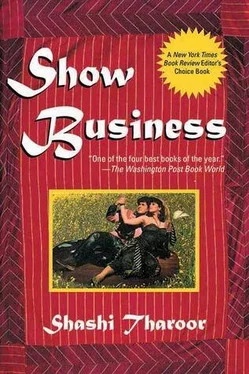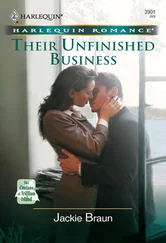Enough of that. I haven’t come here to be nasty to you. What I’ve had to do I’ve done already. Something tells me you even know it. And it’s really begun to take effect on you.
Poor Ashok Banjara. You’d have really enjoyed the adulation you’re getting at this time. This accident has really been the remaking of you. The crowds, the banners, the prayer meetings! OK, so the Prime Minister’s visit couldn’t take place as scheduled, but they say it’s only a postponement, pressing business of state or something. In any case, it’s not the bigwigs who matter. Take it from me. It’s the little guys, the ones who’ve had to give up something to hold this vigil for you outside the hospital, their love is the love that counts. I should know: I was one of them. Before I acquired my silk shirts and four hundred ties, I was like those chaps out there, the petty clerks and the youths without jobs. I was one of them, in spirit and in class origin.
Class origin. What’s the point of mentioning that to you? You probably think “class origin” refers to who you studied with at school. I’m the only one among you clods who reads. But it’s people like me who are the vanguard of revolution — we, the frustrated lower-middle-class whom your lot have squeezed to the point where we have to worry every day where our next meal is coming from. OK, not me personally, but I haven’t forgotten what it was like. I’m still from the underclass, and it never leaves you. I don’t have to force myself to remember.
Did you ever wonder why you were so much more popular a filmi hero than a politician? Why the mass adulation you enjoyed as an actor failed to translate into mass political support when you needed it? Elementary, my dear hot-son. Your screen image was that of the angry young man, the righter of wrongs, the rebel against injustice, the enemy of the establishment. But when you became a politician, you were revealed as what you are — the polar opposite of your screen image. A part of the establishment. The son of a politician. The Prime Minister’s man. The people who cared for you as a hero couldn’t care for you as a leader. You no longer meant anything to them.
Ironic, hanh? And even more ironic — when you ceased to be a politician and this happened to you, they forgot the political stuff and remembered you only as their hero. Look at them outside this hospital. You can see why I despair of the Indian proletariat. Sometimes I wonder if they are even capable of revolution.
I tried to talk to your brother about all this the other day. Nice fellow, your brother, as unlike you as it is possible for a brother to be. A decent chap, and seems to like me, though I say so myself. But the poor fellow was aghast at my politics. I could imagine him thinking how hypocritical it all seemed — successful screen villain emerging from the blast of air-conditioners to speak up for the proletariat. “Bathtub socialism,” somebody called it the other day. I see no contradiction. I was lucky enough to join the system and make it work for me. I know how to make myself useful to the Choubeys and the Gangoolies, useful enough to get what I want from them. But that doesn’t mean I can’t see the system for what it is. The film world is the one place where these class distinctions don’t matter. You can take a street corner tough and make him into a star and even have the convent-educated daughters of millionaires pining for him, a man they wouldn’t have spoken to in the street or admitted into their living rooms. You can also have a rich man’s daughter, classy English accent and all, reduced to stripping for the roles she can get. Ability, public popularity, these are still the clinchers. Hindi filmland is India’s only true meritocracy.
Except — there’s always an except — except for all these filmi dynasties that have suddenly sprung up. Can you imagine it — spoiled, overfed kids whose only qualification is that Daddy was a star, leaping onto the screens and demanding star billing! And it’s actually working, that’s the unbelievable thing. The public is lapping up these tyros as if their being there was the most natural thing in the world. After all, we are a country that still believes in handing professions down from father to son, the same way the caste system came into being. If you are a doctor, your son must be a doctor. If you are a Prime Minister, your son must be a Prime Minister. If you are a movie star, your son must also be a movie star.
So I must qualify my earlier assertion. Bollywood may still be a meritocracy, but it is a meritocracy tempered by genes. And by looks. I’m not a bad actor. I know my limitations, but I grew up with the medium, I know what I can do. And yet, with a face like mine, who’d cast me as a hero? I might be able to act the pants off the idiots who call themselves the stars of the screen, but villain I am, villain I’ll always remain.
Except to Maya.
All those years that you were neglecting her, I remained the one person she could talk to. You didn’t know that, did you? But then you knew so little about her, you had so little time to devote even to thinking about her. You were so busy pursuing your own agenda, you never thought of finding out about hers. Like who she spoke to. Or what she spoke about. Or whether, finally, she felt she had to do something about it.
At the beginning it was just her needing to talk to someone. She rang me out of the blue one night. It was late, nearly eleven. You weren’t home; it wasn’t clear when you would be. She just wanted to talk. I had a woman with me, but I turned away from her and gave my full attention to Maya. Just the opposite of you: you had Maya but turned your attention to other women. As on the screen, so in real life: I had to be your antithesis.
The phone conversations increased in frequency and in length. She got from me, the man she didn’t — she had said couldn’t — love, the things that you, the man she did love, couldn’t, or wouldn’t, give her. Patience. Caring. Understanding. Support. Occasionally, but only when she asked for it, friendly advice. Which she never took, because mainly my advice was “Maya, leave him. Walk out.” She couldn’t do that, or she wouldn’t — and I suppose I always understood why.
But then she came to need more than telephonic communion. The first time she asked me to meet her it was for a cup of coffee at an expensive hotel, the kind of place you’d expect to find movie stars. When we went there at three the place was deserted, and even a passing journalist would have found nothing to remark about in the sight of the two of us drinking coffee in a public place. But when she suggested it again I worried about the risk of being seen — worried for her sake, not yours. And so she asked me to come to your home instead, the one place you were unlikely to be found.
I’ve been wanting to get this off my chest, but when I came here the first time I couldn’t bring myself to do it. Even now, if I really believed you could hear all this, register it, react, I might not have the courage to speak so openly. But it’s important for me to make a clean breast to you. Before it’s too late.
I want you to understand something, Ashok. With Maya it was never just gender attraction, sex, call it what you like. It was, for me, very much more than that. We've abased the word “love” so com pletely in our business that it has come to mean much less than I intend it to, but I do love her. And always have. Even when she was completely yours and I had no contact with her beyond the occasional greeting at the sets when she came to visit you, which she still did, poor innocent, in those early days of your marriage. My feelings for her lay dormant during the years that had nothing to sustain them, but they were always there, like a current waiting to be switched on again. That kind of love doesn’t die, Ashok. It was always there for her, and on that our subsequent relationship was built. Not because I wanted to hop into bed with her or she with me.
Читать дальше












